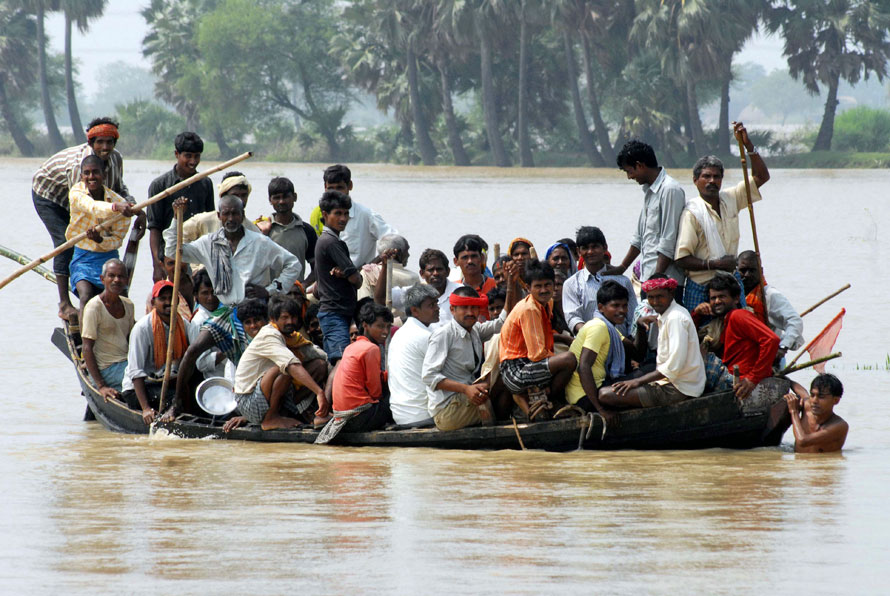Flooded out
 Thirty-eight-year-old Kantilal Pawra spent 32 years of his life foraging in the forest and living off small patches of land in the little village of Bharad in Nandurbar, 380 km north-east of Mumbai.
Thirty-eight-year-old Kantilal Pawra spent 32 years of his life foraging in the forest and living off small patches of land in the little village of Bharad in Nandurbar, 380 km north-east of Mumbai.
In 2003, Pawra’s life was turned upside down.
He and over 4,000 other tribal families from 33 villages were forced to leave their ancestral huts to make way for the Sardar Sarovar Dam, a project touted as a symbol of India’s galloping economic growth.
“We were told we would contribute to the development of the country by moving out,” says Pawra. “Anyway, we didn’t have much choice.”
The Sardar Sarovar Project will help irrigated about 18,000 sq km of drought-affected land in Gujarat and Rajasthan.
The cost, however, was the displacement of the tribals, peasants and villagers in parts of Gujarat, Maharashtra and Madhya Pradesh.
“We were promised a better life, education for our children,” says Pawra.
The promises were never fulfilled.
The Maharashtra government rehabilitated 3,816 of the project-affected families in nine colonies in Nandubar.
These colonies were supposed to be modern and self-sufficient, with civic amenities like running water, dispensaries, primary schools and streetlights.
Instead, the houses are damp, many crawling with reptiles and insects.
There are pipes for running water but the pipes don’t work, and there are tubelights but just a few hours of electricity a day.
Worst of all, the colonies that were supposed to save the tribals from the Narmada’s rising waters are themselves being regularly flooded.
“In 2006 floods washed away the road leading to our village. It’s been three years but the government has still not repaired it,” says Malsingh Pawar.
Adds local activist Pratibha Shinde: “We have repeatedly told the government that the rehabilitation sites are flood-prone and need proper canals and stormwater drains, but to no avail.”
The administration accepts that there are problems.
“We have recently submitted a proposal where we will spend Rs 60,000 on each household to ensure that the houses don’t get flooded,” says district collector Saurabh Rao.
The tribals, though, are disillusioned.
“How come work on the Sardar Sarovar is undertaken at such a rapid pace while the government neglects even the basic requirements of people who have given up what was theirs,” says Balasingh Pawara, who teaches students in a ramshackle tin-shed that passes for a school, for a monthly salary of Rs 1,000.
Ask Pawra about the upcoming election and he says he believes in the democracy but is more concerned about the fact that he has to sleep outside his house tiny because there are too many centipedes and earthworms inside.